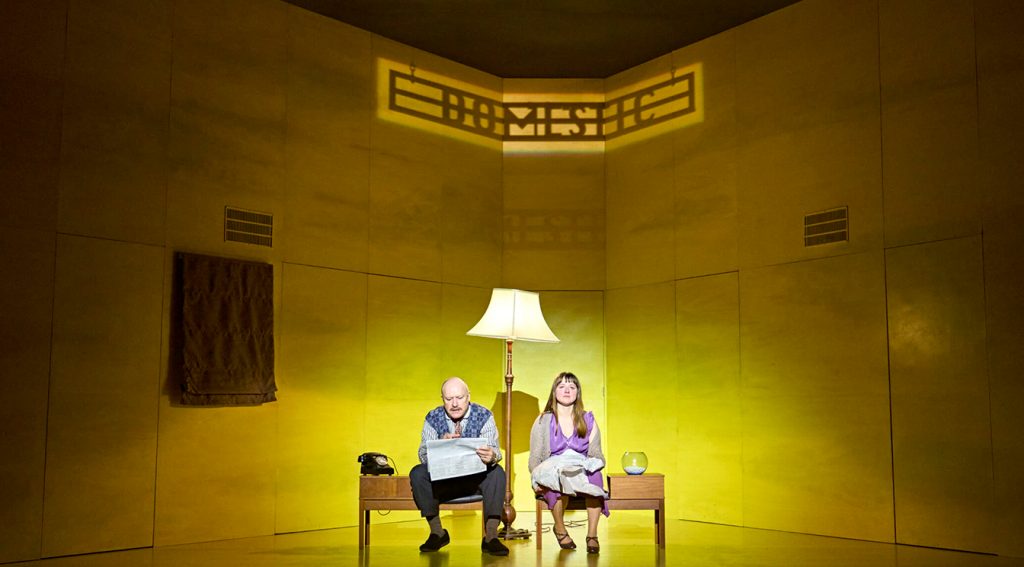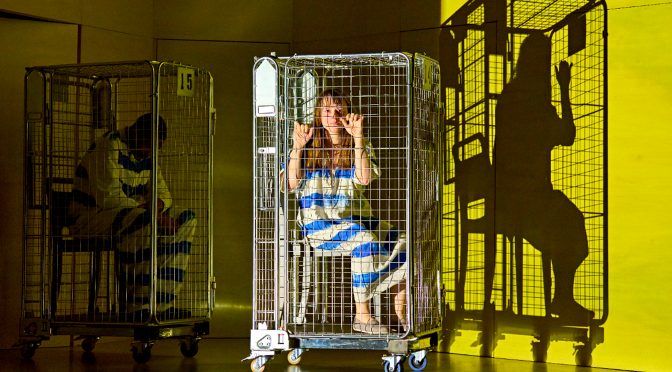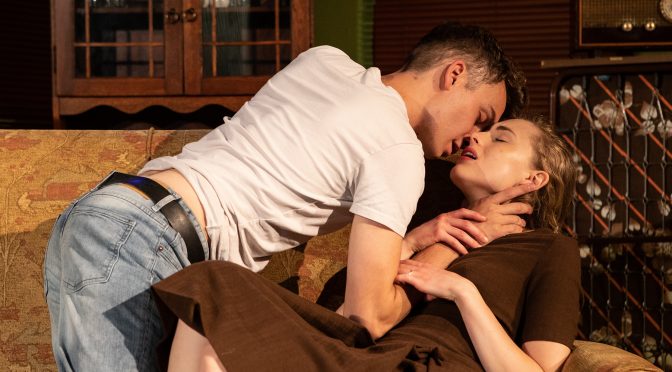After an acclaimed run in Bath, this revival of Sophie Treadwell’s 1928 play comes to London. It’s a confrontational piece based on the execution of Ruth Snyder, who killed her husband in his sleep. The stylised script, described as Expressionist, is matched by Richard Jones’ direction and is unquestionably memorable. But a word of warning: the play is a challenge and at times downright unpleasant.
Treadwell’s version of Snyder is called Helen and is quite a puzzle. She’s super-sensitive to touch and noise and mentions smells more than once. She reacts violently to stimuli with physical spasms. Taking the lead, Rosie Sheehy gives a suitably intense performance that is easy to admire. It’s a mammoth, exhausting role that will surely, deservedly, earn award nominations. The depiction is visceral, but it is also oppressive.
Through a series of (literally titled) scenes, we see Helen’s desperation at home and her unhappy marriage. Then there’s a one-night stand that she reacts to with unexpected passion but characteristic ferocity. The character is clearly ill, but it’s left to the audience to try to work out how – and to question how much sympathy to have for her. Treadwell’s career as a journalist might help here. Is she somehow trying to present events objectively?

Other roles are small, but strong performances make them memorable. Helen’s lover and husband, Pierro Niel-Mee and Tim Francis respectively, are excellent. They don’t quite know what to make of Helen either! The performance from Buffy Davis, as Helen’s mother, is more complex. As with those Helen meets at work or within the legal system, characters have a deliberate flatness and are occasionally comic, which makes you wonder: are we seeing the world all through Helen’s eyes?
The large cast works in a small space, Hyemi Shin’s set makes the stage tiny, so that Jones’ staging is hugely accomplished. All the movement (credited to Sarah Fahie) is controlled – mannered and alienated – while Adam Silverman’s superb lighting design creates yet more claustrophobia through spooky shadows and a lot of strobes.
It all grates. Of course, that’s the point. And theatre doesn’t just entertain. Jones and his committed cast take tremendous efforts to discomfit us (and nearly two hours without a break makes sure of this). Sheehy really is remarkable, and there are moments in Machinal that made my skin crawl. It’s an achievement, of sorts, but not one for all tastes.
Until 1 June 2024
Photos by Manuel Harlan


